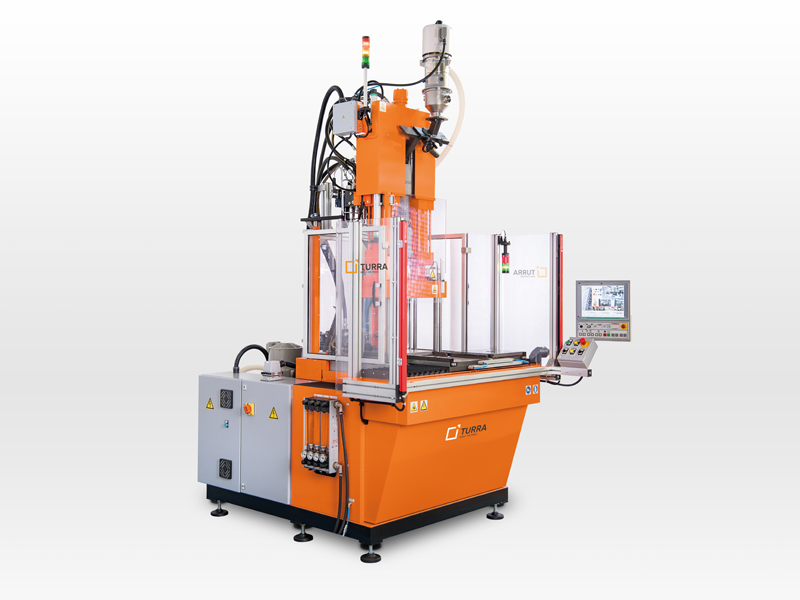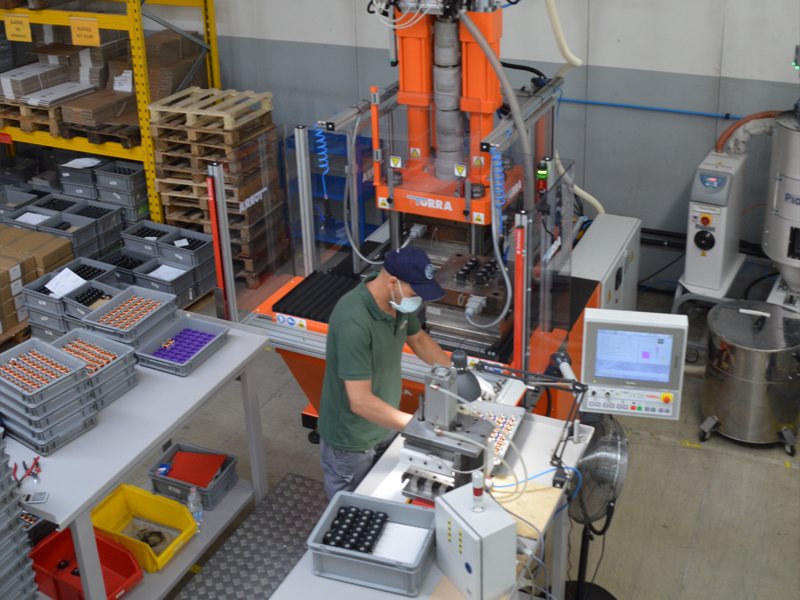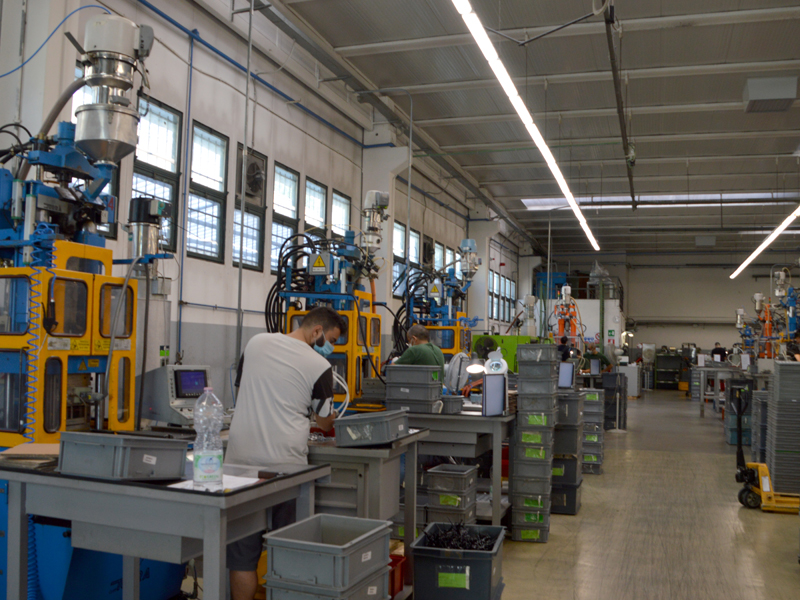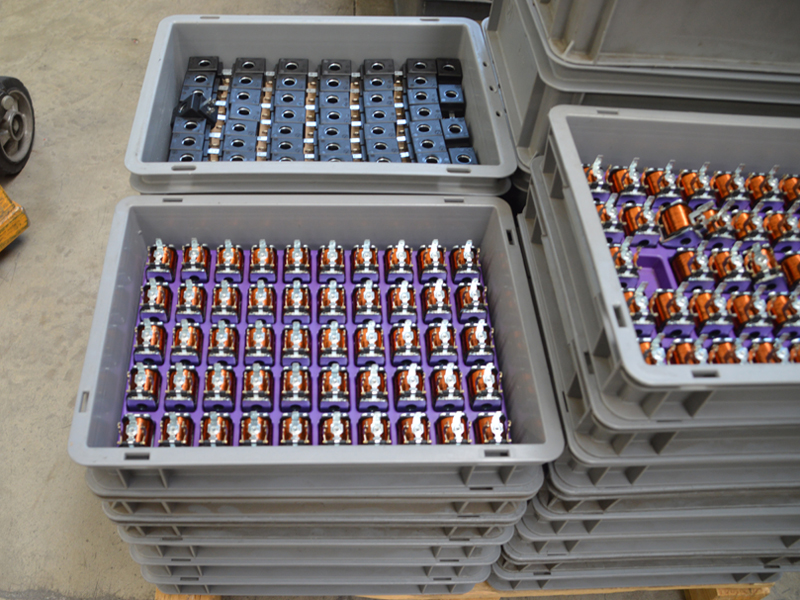Intercoil srl, a company founded in 1995, is a reference point in the development and production of coils for solenoid valves overmoulded with technopolymers. Intercoil coils are used in a wide range of industrial sectors including pneumatics, hydraulics, automotive, electromedical, gas and steam.
Since the establishment of his company, Mr. Alessandria, owner of Intercoil and one of the greatest experts in the coil sector, has chosen TURRA as a partner for his vertical injection moulding machines. The collaboration with Turra began in 1997 and has continued over the years, leading Intercoil to purchase 11 presses with sliding tables, 60 and 80-tons. Mr. Alessandria stated: “In Turra we found a perfect combination of experience, innovation and quality, combined with an efficient and prompt service that intervenes quickly”.
Turra, an Italian company specialised in the production of vertical injection moulding presses for overmoulding, has been operating since 1955. Thanks to its partnership with companies such as Intercoil, Turra has a solid experience in the coil sector and supplies the best coil manufacturers both nationally and internationally. Turra is able to supply both standard and customised solutions with or without automation, according to its Customers’ needs.
In the coil sector, the operator or the automation system, depending on the size of the production lot, loads the electric winding into the press mould and the machine produces coils by an injection process made of a wide range of thermoplastic materials and thermosetting resins. At the end of the production process, all the coils are tested to assure component quality.
Intercoil’s latest investment is a Turra ST-80, installed in May 2020, and they are in the process of updating their entire range of machines.
Mr. Alessandria, to increase the production capacity of his company, has chosen a TURRA ST-80 FC, a vertical machine with a sliding table and photoelectric barriers instead of the traditional pneumatic door and push-button panel. This solution has considerable advantages when it comes to production speed:
– The sliding table, with angular movement and two half-moulds, offers increased productivity. It allows the operator to unload the finished parts and load the electric windings to be overmoulded simultaneously during the injection phase.
– The photocell system has the advantage of not tiring the operator. Buttons are not required to be pressed during table changing, which allows time for the operator to inspect coils during the injection phase. Mr. Alessandria estimated that “thanks to the use of photoelectric barriers, the operator saves about 8 seconds per cycle and, considering an average of 720 cycles per day per shift, the operator has an extra one and a half hours per day that he can use to check consistency and pack the coils”.
TECHNICAL SHEET
TECHNICAL SHEET








